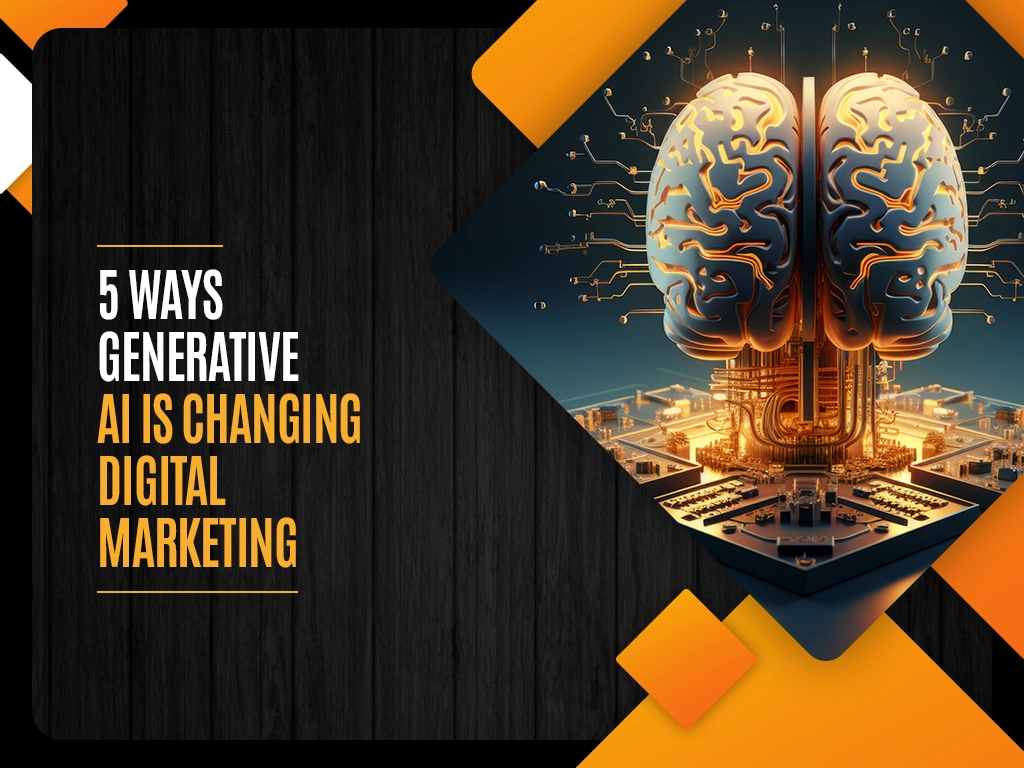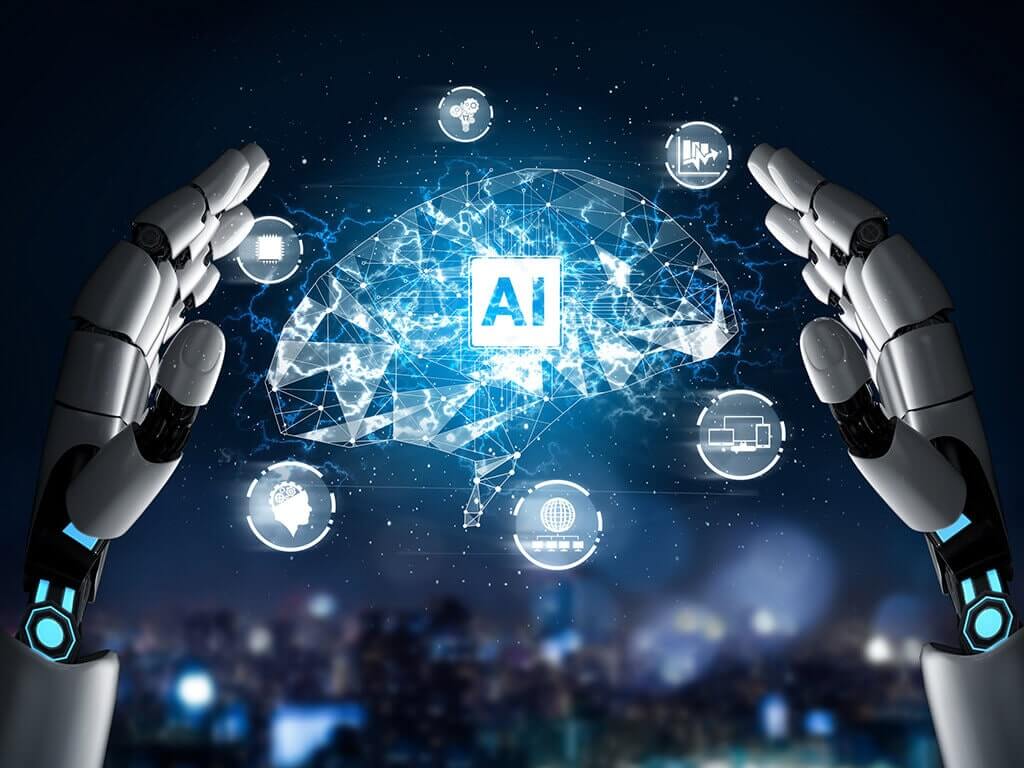5 Ways Generative AI is Changing Digital Marketing
Discover how generative AI is revolutionizing digital marketing with personalized content, data insights, and customer engagement.


Generative AI is getting better and better at more and more tasks. That’s why so many industries are waking up to the immense possibilities of this technology.
This isn’t a thing of the future anymore, as an article in Forbes on ‘How Generative AI Will Change All of Our Jobs in 2024’ makes clear. It’s a fact that will affect all of us imminently.
Digital marketing is likely to benefit more than others as it so closely aligns with what AI is great at. A post published on ‘What is Generative AI?’ on MongoDB gives a great overview of how generative AI does this, but essentially it is excellent at spotting patterns and trends, making sense of what they mean, and generating content that responds to this.
This aligns closely with a digital marketer’s core areas of focus – understanding their audience, finding new ways to reach them, and developing new things to say to them.
This doesn’t mean job cuts, but rather a whole lot more time thinking of brilliant new ideas.
Read on to find out how generative AI is revolutionizing this industry.
Understanding your audience
One of the most time-consuming, sometimes nebulous areas of digital marketing is all the work that goes into understanding existing and target audiences.
First you need to gather data – who they are, what they do, what they like – and then you need to make sense of it, etc – should you spend more on design or copywriting, which channels should you be active on, etc. Both can be virtually endless activities.
Generative AI can not only do this data processing more efficiently, but it can understand your questions about it and can give you sensible suggestions based on its analysis. AI in digital marketing helps speed up this process, providing valuable insights to guide your decisions.
How your customers find you
Generative AI is also changing the way people search the internet, and that means it’s changing how people will find your business and your products. A piece on Search Engine Land on ‘How Generative AI Will Change SEO as a Profession’ seems at first a warning for professionals but is full of positives.
As generative AI makes search engines better at understanding what searchers are asking for, the way digital marketers think about how they answer those questions will become more sophisticated.
Personalized experience
The improved audience understanding offered by generative AI means digital marketers will be able to communicate with their audiences on a far more personalized level.
Interactive content plays a key role here, it enables marketers to create quizzes, calculators, and evaluations that adapt in real time, helping deliver more personalized and engaging user experiences.
Instead of drafting emails that apply broadly to most of an audience, tailored messaging and calls-to-action sent to a segmented audience will allow for a much more personalized journey and stronger engagement rate.
This will be a game-changer for account-based marketing efforts, as our post on ‘Conquering the Nurturing Game with AI Lead Nurturing Tools’ explains, but it will be equally impactful when it comes to crafting onboarding or re-engagement campaigns.
Producing content
The arrival of Natural Language Processing (NLP) has turned what was once an AI weakness into a strength.
That computers are better and quicker at processing data than the human mind has never been in doubt, but more creative tasks were typically AI’s downfall.
But as it’s got better at understanding the nuances of human language, it has also become much better at producing content – whether that’s written or visual content.
While digital marketers will probably never be able to hand this over to an AI application completely, they can rely on it to generate first drafts and variants of their content.
Improving productivity
Productivity in digital marketing will skyrocket. For one thing, generative AI is ideally placed to take a lot of routine tasks off your plate, whether it’s data analysis of content generation.
But generative AI will also help ensure cohesive campaigns. As our post on ‘How to Use AI in Omnichannel Marketing in 2024?’ makes clear, it’s vital that each touch point in a marketing campaign ties to the others.
AI can help you do this more effectively, cutting out wasted activity and ensuring you understand what’s working and why. Integrating AI into our lives and work provides numerous opportunities to be faster and more flexible by utilizing tools like an AI meeting transcription tool similar virtual assistants, and more.




